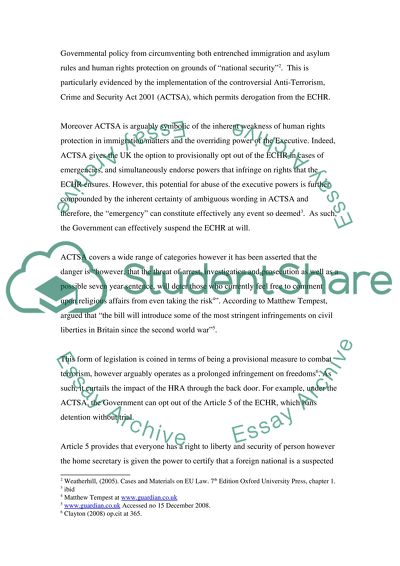Cite this document
(The Governments Immigration Law and Policy Case Study - 1, n.d.)
The Governments Immigration Law and Policy Case Study - 1. Retrieved from https://studentshare.org/law/1552820-in-an-age-of-heightened-threats-to-national-security-it-should-be-open-to-the-government-to-detain-suspected-terrorists-for-an-indefinite-period-of-time-withou
The Governments Immigration Law and Policy Case Study - 1. Retrieved from https://studentshare.org/law/1552820-in-an-age-of-heightened-threats-to-national-security-it-should-be-open-to-the-government-to-detain-suspected-terrorists-for-an-indefinite-period-of-time-withou
(The Governments Immigration Law and Policy Case Study - 1)
The Governments Immigration Law and Policy Case Study - 1. https://studentshare.org/law/1552820-in-an-age-of-heightened-threats-to-national-security-it-should-be-open-to-the-government-to-detain-suspected-terrorists-for-an-indefinite-period-of-time-withou.
The Governments Immigration Law and Policy Case Study - 1. https://studentshare.org/law/1552820-in-an-age-of-heightened-threats-to-national-security-it-should-be-open-to-the-government-to-detain-suspected-terrorists-for-an-indefinite-period-of-time-withou.
“The Governments Immigration Law and Policy Case Study - 1”. https://studentshare.org/law/1552820-in-an-age-of-heightened-threats-to-national-security-it-should-be-open-to-the-government-to-detain-suspected-terrorists-for-an-indefinite-period-of-time-withou.


